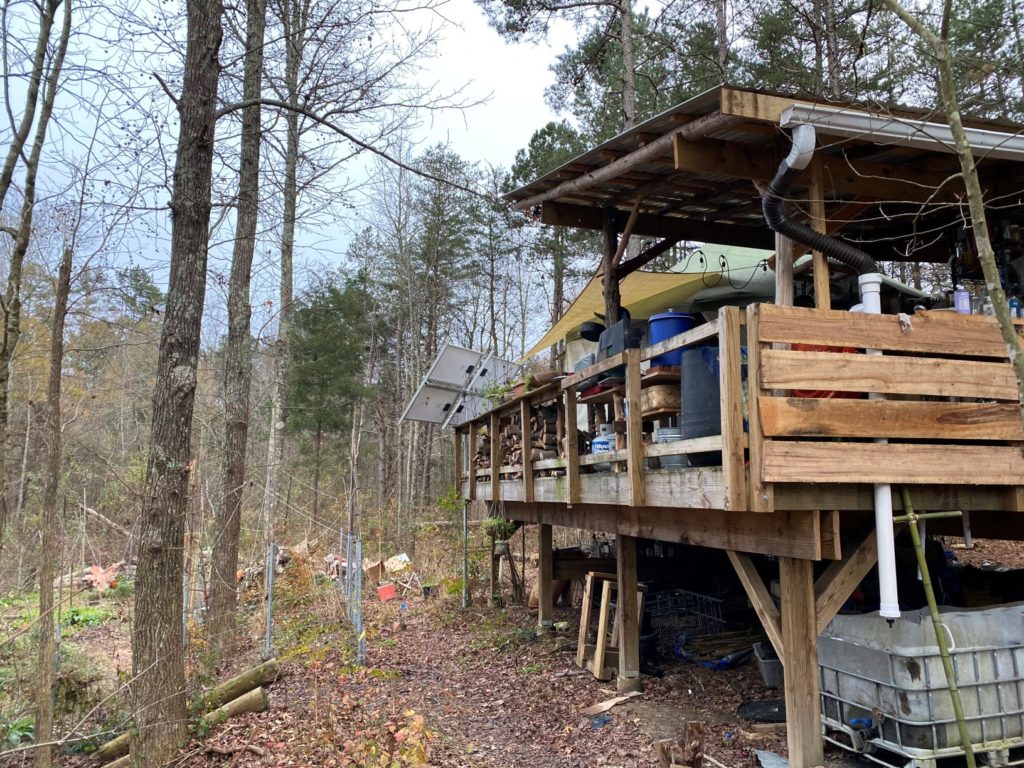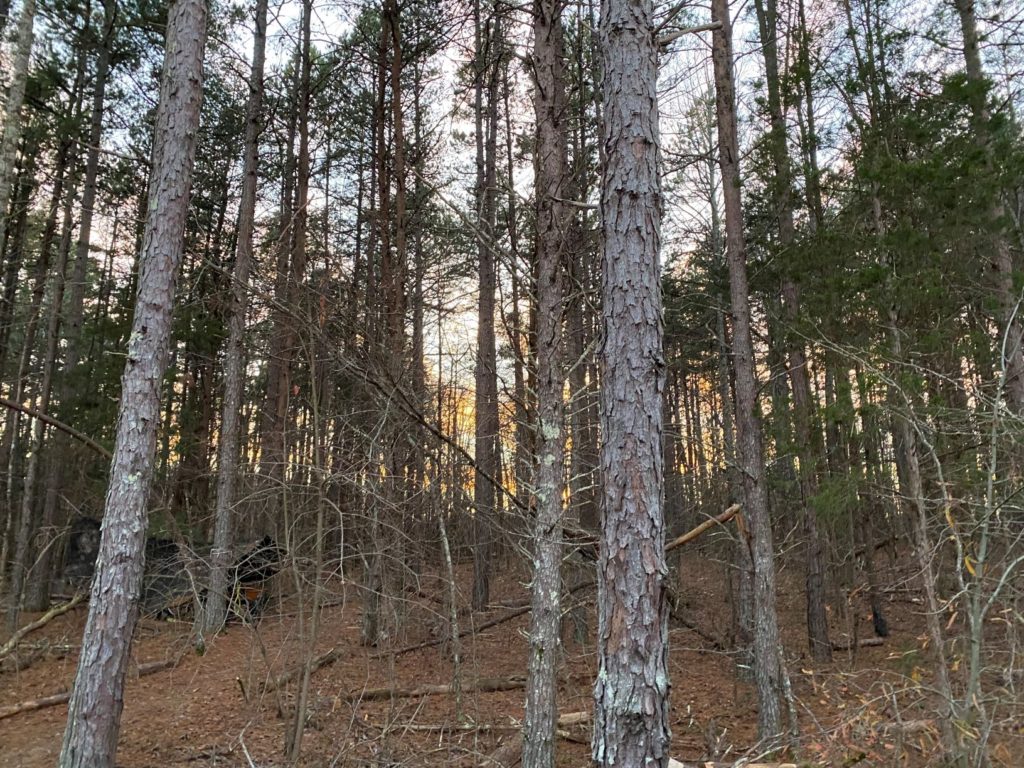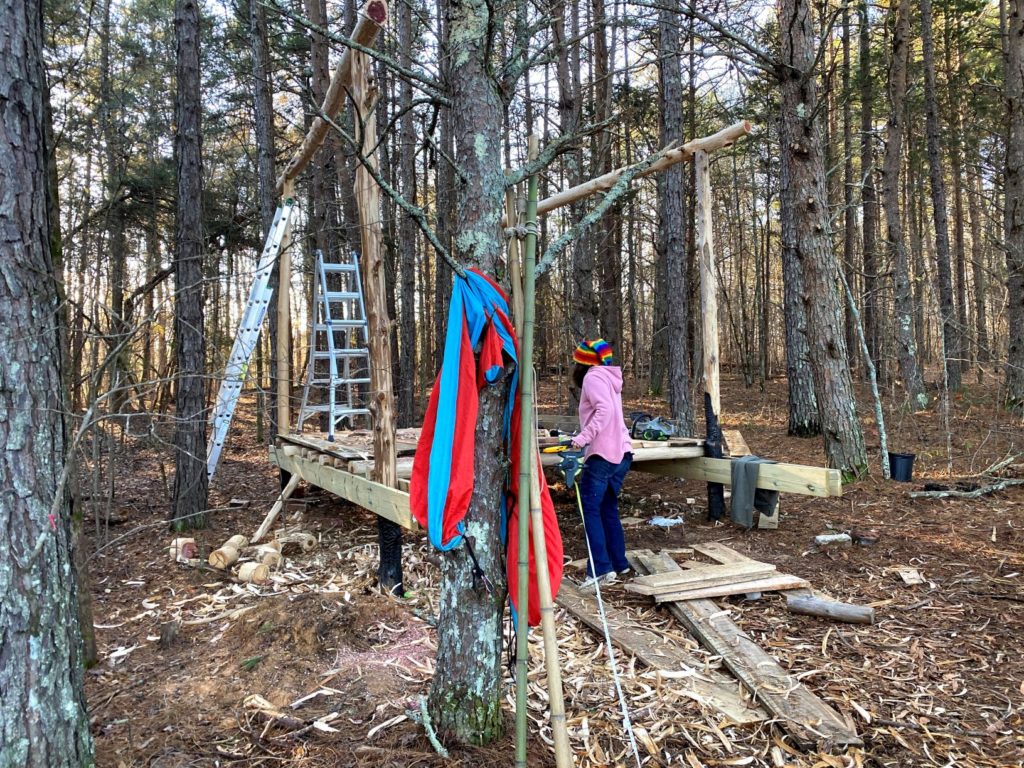On Sunday, I arrived at Rainwater Collective, an aspiring intentional community located off-grid on 17 acres in rural North Carolina. I found it through WWOOF, which is kind of like couchsurfing, but you stay on a farm and provide labor in return for food and a place to stay. (There are hosts all over the world, and many are cool with people coming even for a few days; I highly encourage you to give it a try!)
I initially had reached out to Rainwater because it seemed aligned with my values and located not too far from my sister’s home. After an initial conversation with R–, the host (name abbreviated for privacy), I was really excited to come meet her and see what was up. R– bought these 17 acres three years ago, and she’s since built a barn, an elevated kitchen attached to a yurt that she lives in, an outhouse with composting toilet, duck coop, garden, a long driveway, and much more really cool stuff. And, of course, all water on the property comes from rainwater catchment. WWOOFers and friends assist her with building and maintaining the property, which she does part-time alongside her job as a mental health practitioner. There is also a long-term WWOOFer here, A–, who’s been here for about six months and sleeps in a camper that R– somehow wedged amongst the trees here.

R– has big ambitions for this community, and from what she’s accomplished thus far, I’ve little doubt that her ambitions will be realized. While Rainwater is currently but a community of one (plus her rotating cast of WWOOFers), R– is hoping to attract more people to join who share her vision and her land – she is very eager to no longer be the sole owner of the property. The vision (which I’ll surely butcher, since this is based on only one or two conversations) is a community that is maximally sustainable for the future based on her expectation for that future: namely, societal and ecological collapse. Of course, the jury is out about when this will occur, but the idea is to live according to her values and model a community that can be sustainable. Her vision is to make the community maximally accessible for anyone irrespective of income, and since everyone is expected to work 20+ hours, residents couldn’t really hold down full-time jobs anyway. The vision beyond these 17 acres would be to form interdependent relationships with neighbors in order to provide for everyone’s needs.
This place is an odd juxtaposition of remote nature and insistent human presence. While the area is certainly rural and 17 acres of forest feels remote, the remoteness is largely an illusion. The sounds of a nearby country highway provide a consistent din, punctuated by the guttural rumbling of tractor trailers. Yet when I filter that out as while noise, the sound of silence is palpable here as well, interrupted at intervals by the affable ducks. The night air is filled with howls of coyotes, while neighborhood dogs can be heard returning the calls of their distant feral cousins. R– works the property with great zeal and enthusiasm for the brute nature of the work; and yet she commutes to the nearby metro area 3 days a week for her “default world” job (which she loves, by the way). And while the lush garden still divulges some herbs and greens, R– kindly returns home from the grocery store with an aggressively-yellow box of Cheerios, which I’d requested. Odd juxtaposition indeed.

I love the vision. I certainly am not in a place to be committing to live somewhere right now, and frankly, I’m not sure that this particular flavor is quite for me (for example, while I appreciate minimizing energy consumption, I do believe there are some uses for electricity that I would like to be part of my life). But I’m so thrilled to be experiencing this and learning from R–. Much more to share soon.

